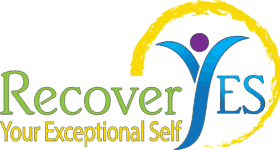Question: How can I make recovery fun?
Dr. Gala’s Response:
Euphoric recall is a psychological term for the tendency of people to remember past experiences in a positive light, while overlooking negative experiences associated with that event. It is considered a factor in developing addiction. Addicts remember the high without attaching the subsequent crash with the experience.
For these purposes, we’re going to use euphoric recall for more productive purposes. Euphoric recall will help us enjoy the fruits of recovery without focusing on the challenges of finding sobriety, managing emotions, dealing with the consequences of the addiction you get the point.
[responsive_video type=’youtube’ hide_related=’1′ hide_logo=’1′ hide_controls=’0′ hide_title=’1′ hide_fullscreen=’0′ autoplay=’0′]https://www.youtube.com/watch?v=YLfSd23KFO0&feature=youtu.be[/responsive_video]
Let’s consider an example most people can relate to. If a woman remembered the painful details of childbirth, we would have very few siblings. In fact, sharing her experience in detail might deter other women from taking the risk in the first place. Euphoric recall allows her to focus on the last moments of the experience where she welcomed her new baby completely minimizing the pain that immediately preceded them.
It’s hard to imagine that the memories of dealing with the cravings and other withdrawal symptoms in early recovery will quickly fade. The challenges of emotional triggers will be thought of fondly as speed bumps on the journey. Bringing up ancient traumas so that the work can be done to heal them, putting them solidly behind you, will instill a sense of exhilaration.
Perspective is much easier to find with a bit of distance between the past and present. With any challenge, there’s work and commitment (in the present) that leads to a payoff (in the future).

Let’s think of addiction recovery like a triathlon. If you’ve challenged yourself to complete the race, you’ll need a big commitment. You’ll accept that it is going to be a lot of work. You’ll do some planning so that you improve your chances of success (in whatever way you’ve defined it).
As you begin training, there will be pain involved. You’ll question whether the time, energy and effort are going to be worth it. There may not be a whole lot of pleasure in the moment but somehow there is a sense of accomplishment. You begin to see some positive results and have some satisfaction that you’re doing what you said you were going to do.
Ultimately, when race day comes and you cross that finish line, there’s euphoria that can only be described as pure joy and fun. You may not have experienced every moment leading up to this one as fun. In hindsight, it’s clear that setting a goal, making change, really challenging yourself that’s what makes life worth living.
